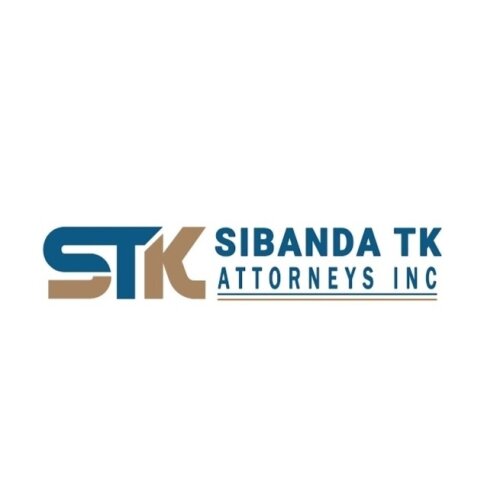Best Conveyancing Lawyers in Kwamhlanga
Share your needs with us, get contacted by law firms.
Free. Takes 2 min.
Free Guide to Hiring a Real Estate Lawyer
List of the best lawyers in Kwamhlanga, South Africa
About Conveyancing Law in Kwamhlanga, South Africa
Conveyancing refers to the legal process by which the ownership of immovable property such as land or a house is transferred from one person to another. In Kwamhlanga, as elsewhere in South Africa, this process is strictly governed by regulations to protect the parties involved and ensure that the transfer of property rights is valid and recognized by law. Conveyancing in Kwamhlanga is typically carried out by specialized attorneys known as conveyancers. These professionals have the necessary qualifications and authority to manage the complex legal procedures required for property transfers, registration, and related transactions within the region.
Why You May Need a Lawyer
There are several reasons why you might need the assistance of a qualified conveyancing attorney in Kwamhlanga. Common situations include:
- Buying or selling a home or land
- Transferring property ownership due to inheritance or divorce
- Registering a bond (mortgage) or canceling an existing bond with a bank
- Checking property title deeds and ensuring the absence of legal restrictions or disputes
- Managing legal documentation required by the local Deeds Office
- Addressing disputes between buyers, sellers, or third parties regarding property rights
Legal advice is critical to avoid mistakes which could lead to nullified transactions, unforeseen liabilities, or delays in the transfer process.
Local Laws Overview
The conveyancing process in Kwamhlanga is governed by national legislation such as the Deeds Registries Act, the Sectional Titles Act, and the Alienation of Land Act, as well as local bylaws that pertain to municipal rates and property zoning. The key steps in conveyancing in Kwamhlanga include the drafting and signing of a sale agreement, payment of transfer duties and municipal rates, lodging and registering documents at the local Deeds Office, and ensuring compliance with specific Kwamhlanga municipal requirements. Conveyancing attorneys play an essential role in interpreting and applying these laws to your transaction, verifying that the entire process is legal, fair, and binding for all parties involved.
Frequently Asked Questions
What is a conveyancer and why do I need one?
A conveyancer is an attorney with additional qualifications who is legally authorized to manage the transfer of property ownership. Their expertise ensures that your property transaction follows all legal requirements and is officially recognized by the state.
How long does the conveyancing process take in Kwamhlanga?
The process can take between six to twelve weeks, depending on factors such as the availability of required documents, municipal clearance certificates, and processing times at the Deeds Office.
What are the typical costs involved in conveyancing?
Costs include conveyancer’s fees, transfer duty (a tax payable to the South African Revenue Service), rates clearance certificates from the local municipality, and bank costs if a bond is registered or cancelled. Ask your attorney for a complete breakdown of estimated fees.
Who pays the conveyancing fees?
In most cases, the buyer is responsible for paying the conveyancer’s fees and related costs unless otherwise negotiated in the sale agreement.
What documents will I need for the property transfer?
You will need a sale agreement, identity documents, proof of address, mortgage bond details if applicable, and any additional documents as required by the conveyancer or the municipality.
Can I handle the conveyancing process on my own?
No. In South Africa, only qualified conveyancers can lodge and register property transfers at the Deeds Office, so you must use a registered professional.
What is a rates clearance certificate?
It is a document from the local Kwamhlanga municipality confirming that all municipal accounts related to the property are fully paid up to date, which is essential before transfer can occur.
Are there any risks in buying property without proper legal advice?
Yes. Risks include purchasing property with unresolved disputes or debts, fraud, and the possibility of the transaction being declared invalid, which could result in financial loss.
How can I verify if a conveyancer is registered?
You can ask for their registration details and check with the Legal Practice Council, which regulates attorneys and conveyancers in South Africa.
What happens if there is a dispute during the transfer process?
Disputes are usually resolved through negotiation between attorneys. If conflicting parties cannot reach an agreement, the matter may be taken to court or an alternative dispute resolution mechanism may be engaged.
Additional Resources
For further information and to ensure your conveyancing process is handled correctly, consult the following:
- South African Deeds Office: For information on registering property
- Legal Practice Council: To verify a conveyancer’s credentials
- Kwamhlanga Local Municipality: For property rates and municipal clearance procedures
- South African Revenue Service: For guidance on transfer duty and property taxes
- Law Society of South Africa: For general legal information and guidance on conveyancing processes
Next Steps
If you plan to buy, sell, or transfer property in Kwamhlanga, your first step is to consult with a qualified conveyancer or property law attorney with experience in the region. Prepare all necessary personal and property documents, and ask about the total expected costs and timeframes. Stay proactive throughout the process by regularly communicating with your conveyancer and responding quickly to requests for information. Remember, choosing a reputable legal professional not only protects your investment but also ensures a smooth and legally compliant transfer of property ownership in Kwamhlanga.
Lawzana helps you find the best lawyers and law firms in Kwamhlanga through a curated and pre-screened list of qualified legal professionals. Our platform offers rankings and detailed profiles of attorneys and law firms, allowing you to compare based on practice areas, including Conveyancing, experience, and client feedback.
Each profile includes a description of the firm's areas of practice, client reviews, team members and partners, year of establishment, spoken languages, office locations, contact information, social media presence, and any published articles or resources. Most firms on our platform speak English and are experienced in both local and international legal matters.
Get a quote from top-rated law firms in Kwamhlanga, South Africa — quickly, securely, and without unnecessary hassle.
Disclaimer:
The information provided on this page is for general informational purposes only and does not constitute legal advice. While we strive to ensure the accuracy and relevance of the content, legal information may change over time, and interpretations of the law can vary. You should always consult with a qualified legal professional for advice specific to your situation.
We disclaim all liability for actions taken or not taken based on the content of this page. If you believe any information is incorrect or outdated, please contact us, and we will review and update it where appropriate.









